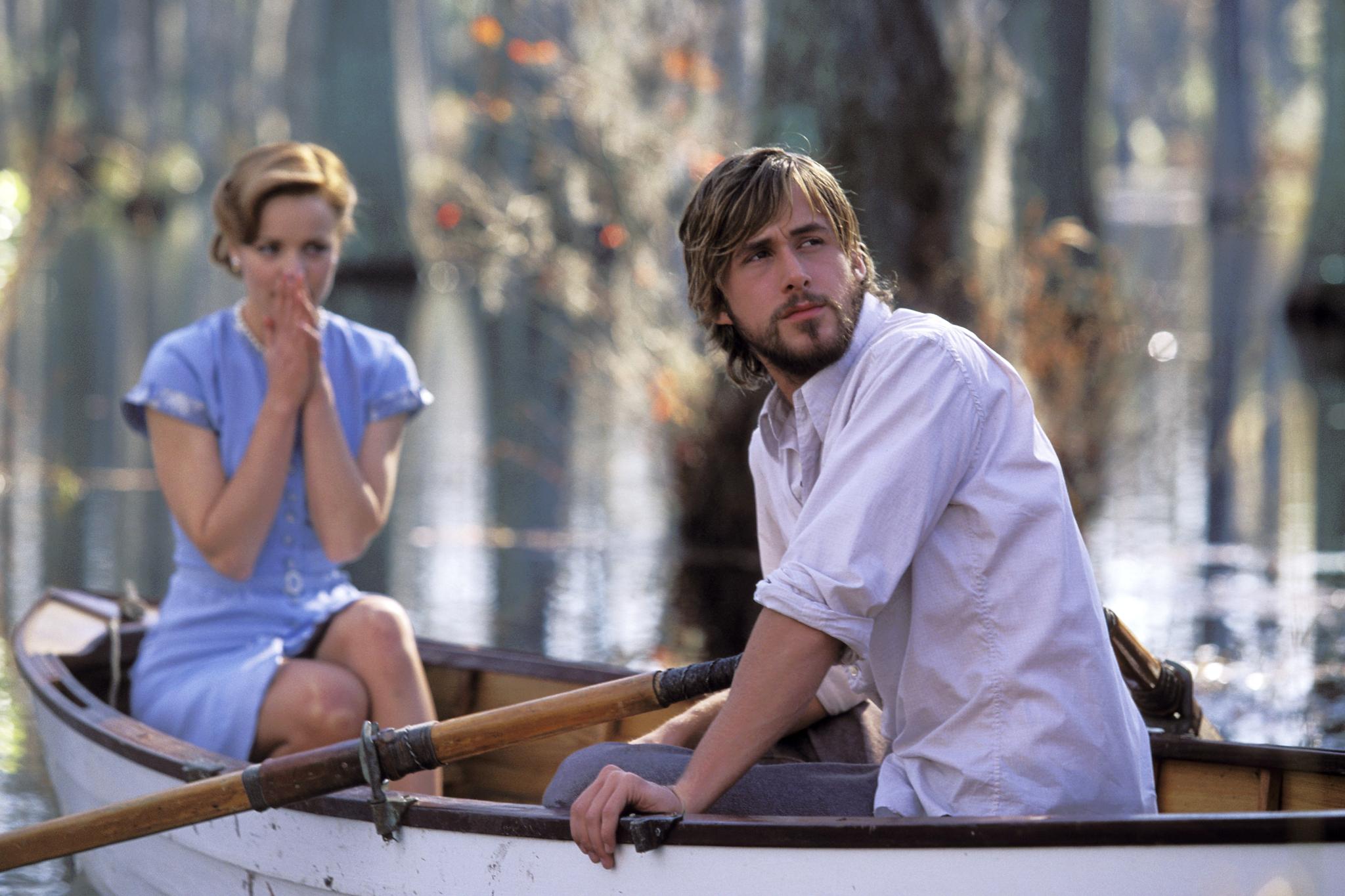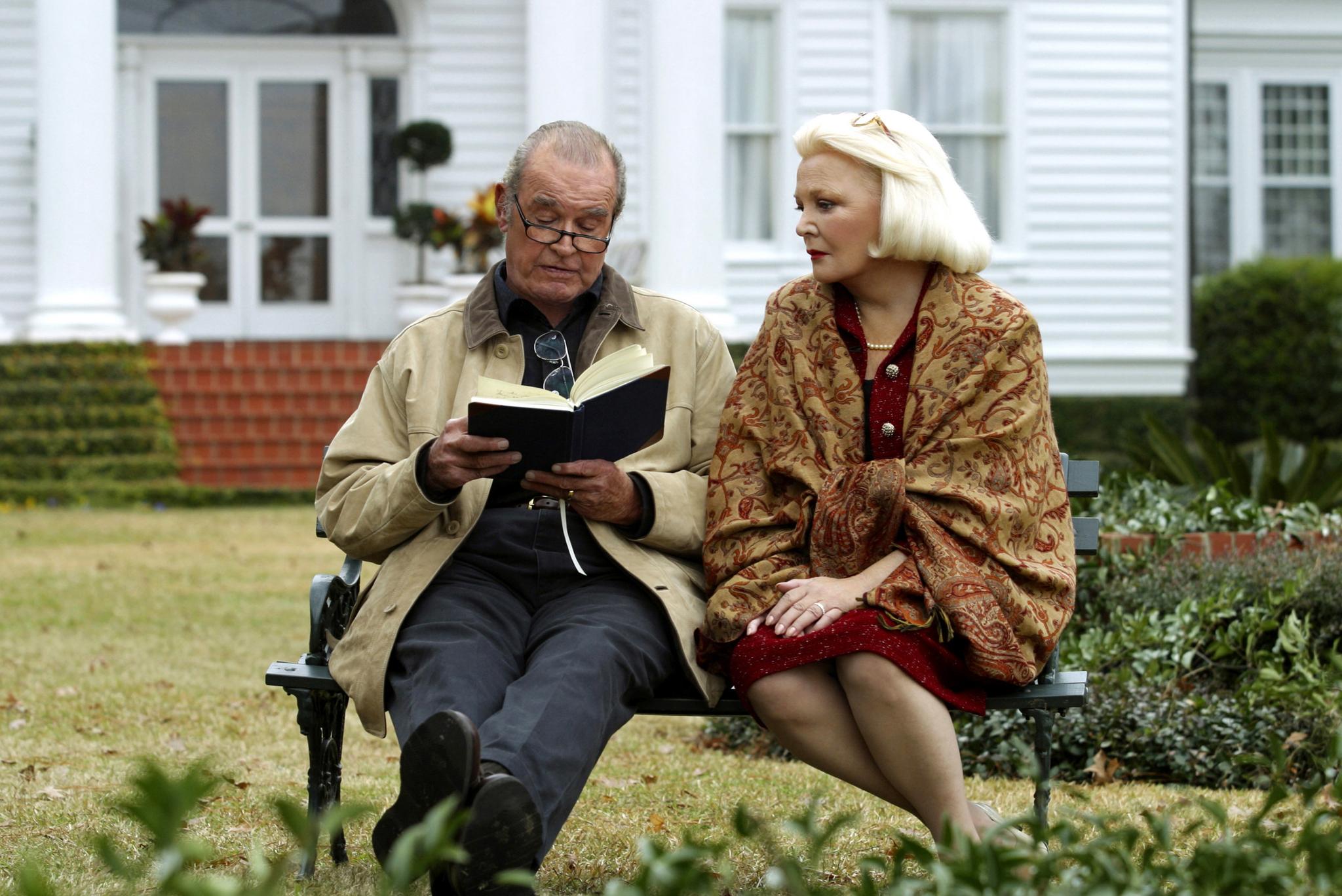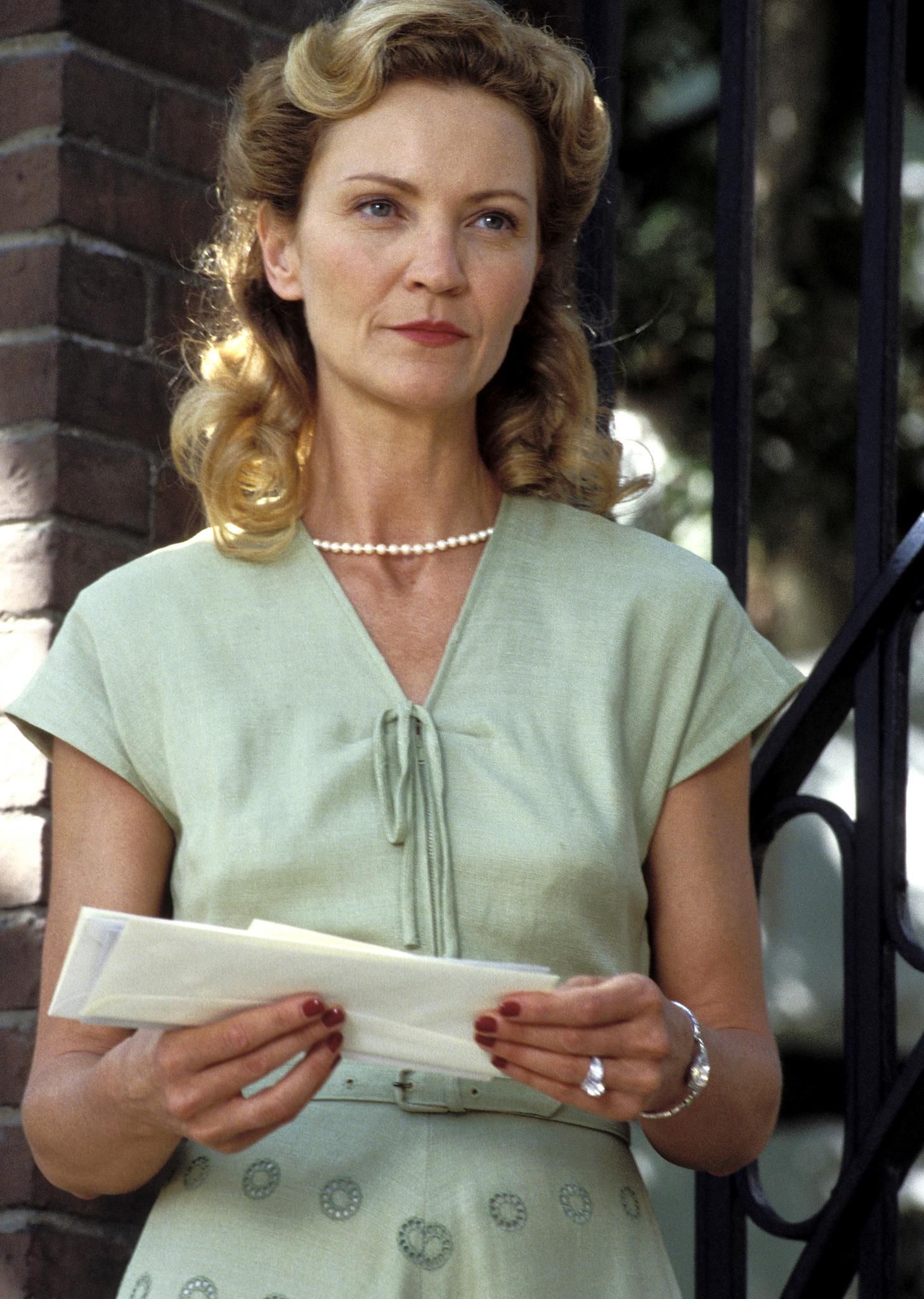Synopsis
In a serene modern-day nursing home, an affectionate elderly man, Duke, fills his days by reading tales of romance to a fellow resident named Allie. As Duke turns the pages, a poignant story from a bygone era unfolds.
Back in 1940 on Seabrook Island, South Carolina, the young and rugged Noah Calhoun, works tirelessly at a lumber mill. One fateful day at a local carnival, his world collides with that of the vibrant and wealthy heiress, Allison "Allie" Hamilton. Despite their vastly different worlds, Noah is smitten, and after a daring gesture involving a Ferris wheel, succeeds in persuading Allie to go out with him. Though initially resistant, Allie is drawn to Noah's undeniable spirit.
The summer unfolds into a passionate romance, with the couple discovering newfound facets of life and each other, despite their arguments and differences. While Noah’s warm-hearted father Frank is welcoming, Allie’s parents frown upon the relationship due to Noah's humble background. A future together seems impossible as they struggle against societal expectations.
A secret getaway to Windsor Plantation, an abandoned house Noah dreams of turning into their shared home, becomes a cornerstone of their relationship. There, high hopes are built as Allie imagines a house with white walls, blue shutters, and a room filled with sunlight for her painting dreams. However, their intimate moment is abruptly halted, and reality rushes back with Allie's family cutting the summer short.
The couple is torn apart, believing each other to have moved on. Noah writes to Allie every day for a year, yet his words never reach her, as Allie's mother intercedes. World War II looms, taking Noah overseas and into the midst of battle, while Allie finds solace in volunteering, eventually meeting someone new, a charming soldier named Lon. Engagement follows, much to the delight of Allie's parents.
Years later, fate weaves their paths together again. Noah, having returned home, throws himself into restoring the dilapidated Windsor house to Allie’s specifications, hoping it might bring her back. His dreams come to fruition, attracting Allie’s attention through an unexpected newspaper feature. With a heart full of nostalgia and unresolved feelings, she revisits the past, rekindling the flame with Noah amidst tensions and choices brought by love’s lost time.
In the nursing home, Duke’s poignant storytelling serves as a gentle bridge to the present, revealing that the notebook he reads from is more than just words—it's a lifeline tethered to memories, written by Allie herself as she battles dementia. Through its pages, fleeting memories are revived, if only for moments, providing solace in the twilight of their lives. The unwavering devotion culminates in an enduring promise kept as they find eternal rest together, leaving an unforgettable legacy of love that transcends time.
Argument
The timeless romance embodied in presents more than just a love story; it offers a deep exploration into the resilience of love amidst societal divides and the ravages of time. Set primarily on Seabrook Island, South Carolina, this narrative evolves around the intense but star-crossed relationship between Noah Calhoun, an unassuming lumber mill worker, and Allie Hamilton, a spirited young heiress. At the forefront of their story is a stark clash of social classes, which serves as the perennial antagonist, illustrating the notion that external forces can impact personal destinies in profound ways.
At first glance, Noah’s encounter with Allie at a carnival might appear manipulative, yet it's a pivotal moment that sets the tone for their dynamic: a tale of an insistent pursuit that challenges Allie's worldview. Allie's initial reluctance transforms into cautious curiosity as Noah audaciously boards her Ferris wheel carriage, his reckless ultimatum exposing both his courage and desperation. This bold gesture, while controversial, signifies a catalyst for Allie's personal growth, steering her toward experiences beyond her preordained path, dictated by demanding parental expectations.
As the storyline unfolds, the evolution of their relationship is noteworthy. Passing through phases of learning and exploration, Allie and Noah discover the joys of shared experiences, from dancing in the street to intimate confidences by the moonlit water. Their romance blossoms amidst a backdrop of conflict—not only spurred by Allie's rigorous societal commitments—but fueled by fundamental differences in their temperaments. Nevertheless, these conflicts highlight a crucial theme: true love thrives not because of perfection but in spite of imperfection.
This narrative takes a poignant turn when familial opposition emerges as a formidable adversary. Despite Allie's affection for Noah, her parents immediately dismiss him based on his socio-economic standing, deeming him unworthy. This judgment plays a substantial role in their separation, presenting a societal critique of class-based prejudice. In stark contrast, Noah's father, represented as open and devoid of bias, provides a glimpse into a more progressive perspective on social issues—a subtle critique of the superficial barriers that deter genuine connections.
The symbolism in their dream of a house epitomizes their shared aspirations. When Noah promises to restore and purchase the Windsor Plantation, it underscores a foundational belief in their joint future—a structure not just of bricks and mortar, but of shared desires. Allie's visions for the house—white with blue shutters, an art room, and a sprawling porch—mirror her dreams that lay dormant under familial expectations. Yet, a touching scene when their love nearly consummates in the abandoned house but is thwarted, encapsulates the tension between youthful love and the haunting responsibilities imposed by adult life.
Upon their abrupt separation, exacerbated by a heart-wrenching misunderstanding fueled by Anne's interception of Noah's letters, the story challenges the capacity of love to endure absence. Noah’s relentless year of daily letters becomes an emblem of his unwavering commitment, even as circumstances unfold into the chaos of war and loss. With Noah serving in World War II, the narrative underscores the personal sacrifices young lovers endured—a reflection on love tested by the finality of death, as exemplified by the tragedy of Fin's demise.
In the aftermath of war, new beginnings beckon; Allie, having established a semblance of normalcy with Lon, a seemingly ideal partner yet one who never ignites the passion she shared with Noah, faces a dilemma wrought not from coercion but familiarity. The prospect of their engagement highlights the theme of societal expectations versus personal happiness, forcing Allie toward introspection in choosing between convention and authentic emotion.
The restoration of the house marks a triumphant act of faith by Noah, a physical manifestation of the beliefs he holds dear about love's power to reconcile the past with the present. Upon seeing a newspaper photo of this testament to their shared dreams, Allie re-evaluates her choices, illustrating the theme of self-discovery catalyzed by remembered passion. The reconciliation between Noah and Allie is profound, reviving both past affection and unhealed wounds.
In a modern narrative framework, the true identities of the elderly Duke and Allie are revealed, lending a deeper dimension to the story—a portrayal of enduring love amid decline. Offering glimpses of a future faced with illness and memory loss, the tender retelling of their love story is Allie’s self-built mechanism to combat forgetfulness—a testament to the soaring Nietzschean concept that amor fati, love of one’s fate, can conquer all adversities.
In its conclusion, does not simply rest on the laurels of nostalgic romance. Its ultimate statement—embodied so poignantly in the dual heartbreak of temporary remembrance followed swiftly by cognitive relapse—echoes the unyielding bond formed through shared history. Concluding in a final, serene rest, the tale affirms the idea that love persists beyond life itself, encapsulating a poetic amalgam of memory, fidelity, and the eternal dance of togetherness.
Cast

Gena Rowlands
Allie Calhoun

James Garner
Duke

Rachel McAdams
Allie

Ryan Gosling
Noah

Tim Ivey
Rower

Starletta DuPois
Nurse Esther

Anthony-Michael Q. Thomas
Nurse Keith

Ed Grady
Harry

Renée Amber
Nurse at Counter

Jennifer Echols
Nurse Selma

Geoffrey Knight
Barker

Kevin Connolly
Fin

Heather Wahlquist
Sara Tuffington

Andrew Schaff
Matthew Jamison III

Matt Shelly
Seabrook Boy

Michael D. Fuller
Seabrook Boy

Jonathan Parks Jordan
Seabrook Boy

Leslea Fisher
Seabrook Girl
Multimedia













